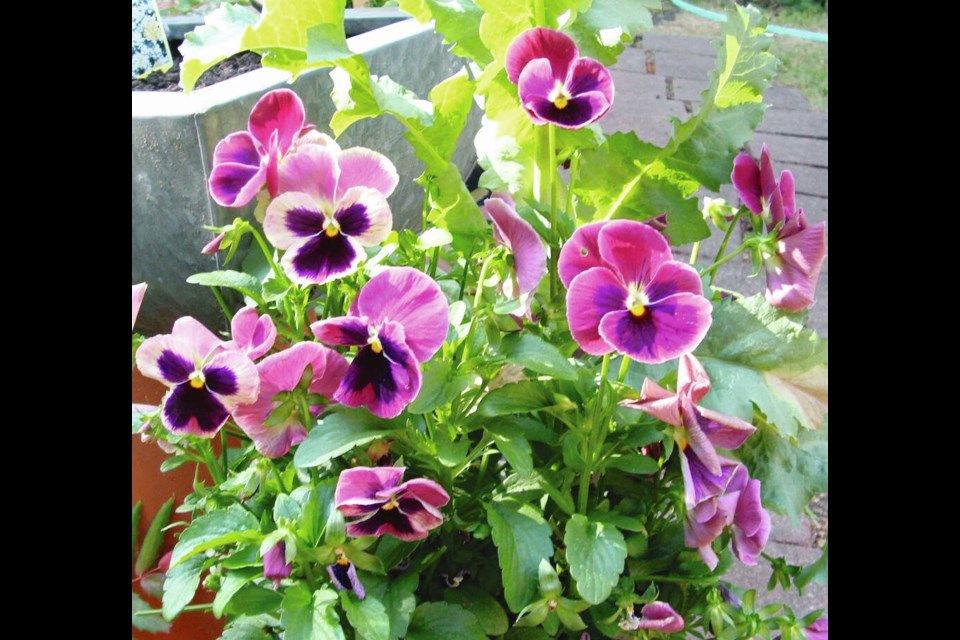A harsh lesson learned from the garden this year: No longer can I take for granted my usual harvests of favourite staple vegetables.
For over four decades in this garden, spring plantings of shelling peas, carrots and beets have provided close to year’s supply of these foods. In a typical year, the new crops have begun germinating as I use the last of the previous year’s harvest.
Not this year. Carrot seeds failed to germinate in the heat. A third sowing gave me some germination. The pea plantings have been a sad shadow of their usual vibrant, productive growth.
There have been periods of high spring heat before. Different this year was a winter that failed to deliver usual amounts of rainfall, followed by a mostly dry spring. In areas of the Island with loose-textured, fast-draining, sand-based soils, the ground became deeply dry.
A friend who lives in what is considered a flood plain on the Island had no problems at all. Her spring and early summer garden were splendidly productive, despite the heat. The high water table where she gardens helped with soil moisture levels. I once lived in the Okanagan, a block from a lake on a stream-side property with heavy clay soil. The water table was very high. Sump pump in the cellar. Spectacularly productive garden.
Clay soils, considered difficult because of their tight-textured heaviness and slowness in draining of excess moisture, present significant advantages in times of heat and drought.
Anticipating a repeat of this year’s challenges in 2024, I’ll be making sure the soil is deeply moistened and well covered with leaves or straw before winter.
Because my soil is sandy and early to warm, the earliest possible seedings of peas and carrots will help to ensure seedlings are up and growing before high heat hits the garden.
An essential temperature control measure will be planning for shading measures. So far, large pieces of cardboard have been the easiest and most effective shade providers I’ve tried. They can be leaned against wire fencing supporting peas or young staking tomato transplants, or propped up by stakes on the south side of carrot, kale or other young plantings.
The cardboard can be found in recycling bins and sometimes at stationery stores and picture framing places, where proprietors may be pleased to have cardboard packaging taken away. When the cardboard begins to disintegrate, it can be shredded for the compost or laid on paths for weed-proofing.
'Live-forever' plants
My garden abounds in hot, dry sites with thin, minimally fertile soil. To turn these unlikely places into something interesting and colourful, I’ve settled sempervivums into them. The name means “always alive” and they do live on, in conditions that most plants would not survive.
Sempervivums are succulents that form mats of fleshy-leaved rosettes. The summer flowers attract and nourish bees. The rosettes spread around easily via prolific production of little offshoots, a procreation style that has earned the plants the name “hen and chicks,” Other common names are houseleeks, which refers to the plants grown on house roofs in some parts of Europe, and “liveforever.”
They are perfect container plants. In hot countries they are used to create decorative displays in pots and hanging baskets, where they demand little attention except occasional watering over the years. I have a series of sempervivums in clay bowls, and a planting in a hypertufa basin beside the back lawn. These are perfect plants for our challenging times.
Hot pansies
My pansies and violas, which I grow for container plantings that flower from early autumn through the spring, have always died down with late spring heat — until this year. A pansy in the Karma Series continues producing fresh foliage and lovely flowers, in two small containers. One is in full afternoon sun.
Karma Pink Blotch was a random pick from the Lindenberg Seeds catalogue last year. I’ll be choosing more Karma pansies from their 2024 catalogue. Strawberry Cream and Blue Sun are likely choices.
GARDEN EVENTS
Plant sales. The Friends of Government House Gardens Society is hosting sales of well-rooted perennials in the Plant Nursery, across from the Tea Room at Government House, 1401 Rockland Ave. in Victoria, from 10 a.m. to 2 p.m. on Tuesday, Wednesday and Thursday. Sales payable by debit or credit cards only.



